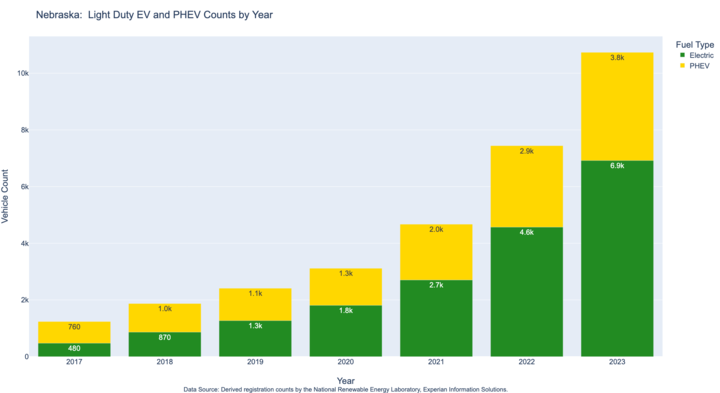Working in partnership with the U.S. Department of Energy (DOE) the Clean Cities and Communities Program is an initiative to advance clean energy transportation alternatives nationwide. There are more than 75 DOE-designated CC&C coalitions in the U.S. that work to support local initiatives to implement clean energy alternatives.
Designated on January 14, 2025, the Nebraska Clean Cities and Communities Coalition (NEC4) is an independent, U.S. Department of Energy–designated coalition committed to advancing clean transportation across Nebraska. The coalition is housed at the Nebraska Transportation Center at the University of Nebraska–Lincoln.
As a Clean Cities and Communities Coalition, we employ three strategies to achieve our mission:
Replacement
Direct substitution of a petroleum product with an Alternative Fuel
Reduction
Decrease petroleum use by promoting smarter driving habits, fuel-efficient vehicles, idle reduction, and advanced technologies.
Elimination
Severely reducing petroleum use by encouraging mass transit usage, trip elimination, and congestion mitigation.

Nebraska Clean Cities and Communities' partnerships with federal, state , and local agencies, utilities, public interests groups, and public and private fleets are focused on the deployment and use of:
- Alternative Fuels and Vehicles
- Hybrid Electric Vehicles
- Idle Reduction Technologies
- Fuel Economy Measures
- Fuel Blends
Learn more about the DOE's Clean Cities and Communities Program here: https://cleancities.energy.gov/
Learn more about alternative fuels here: www.afdc.energy.gov
NEC4 Quick Stats
Population: 1,978,379 as of July 1, 2023
Area: 77,348 mi²
Service Area: Entire state of Nebraska
269,403
Alt Fuel Vehicles in Nebraska
Electric Vehicles: 6500+
Biodiesel Vehicles: 25,000+
CNG Vehicles: 50+
Flex Fuel Vehicles: 195,000+
Hybrid Vehicles: 32,000+
Plug-in Hybrids: 3500+
Propane Vehicles: 30+